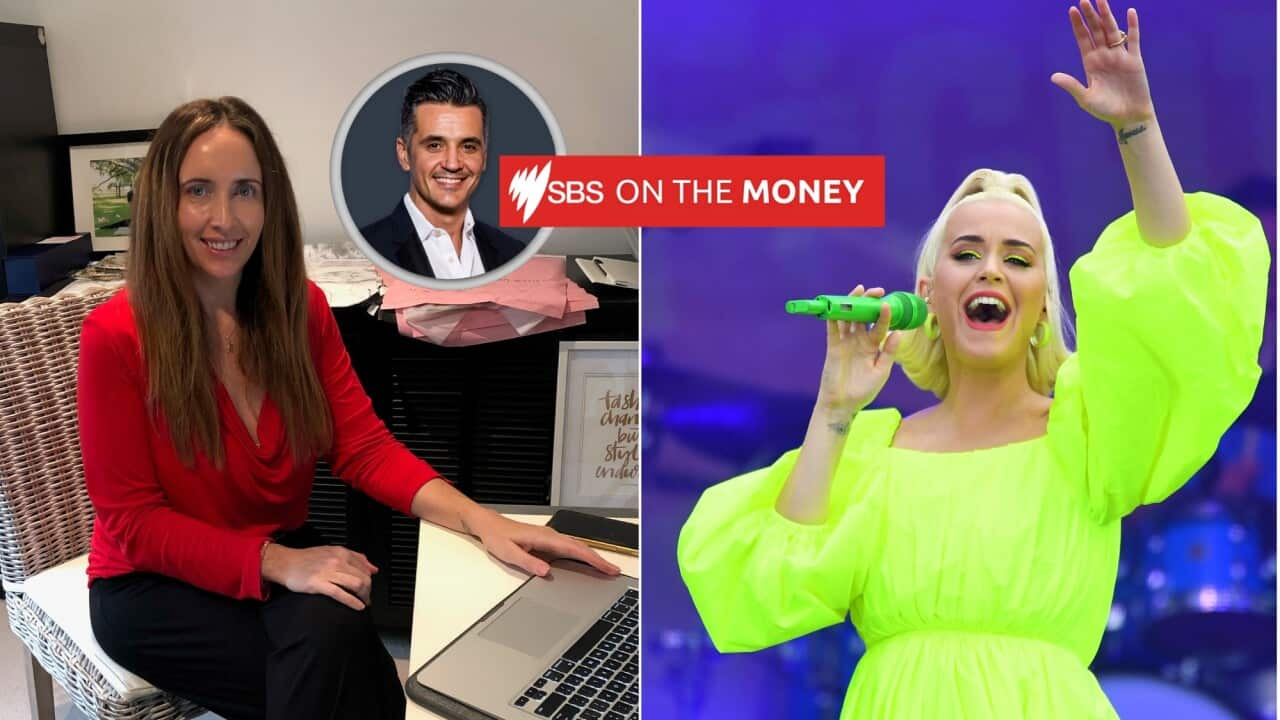This automated transcript has been created using artificial intelligence machine learning technology. Although the quality of the transcript is high, it has not been reviewed by the SBS production team.
TRANSCRIPT
Ricardo Goncalves:
Coming up, both the Australian share market and Australian dollar hit a one month low and consumers still pessimistic. We'll have the details why, Next
It is your daily 10 minute business and finance news wrap for this Tuesday the 16th of January. We're going straight to the Australian share market, which fell again today, 1.1% to 7,414 on the S and PASX 200. It's now at a one month low where sentiment has really turned. If you remember, the market was just off its record high only a few weeks ago. What's happened? I spoke with Julia Lee, equities investment specialist, a State Street global investors, Julia. So the A SX is at a four week low after so much optimism at the beginning of the year. So what's happened?
Julia Lee:
I think there are different ways to view market performance and expected performance. And one of the key ways is through earnings expectations. And if we have a look at what's expected in terms of earnings for the Australian share market this year, it is expected that we'll see a decline of 3.3%. That compares to markets like Japan where we're still seeing a lot more upgrades versus downgrades to Japanese companies and the s and p 500 where we're expecting to see consensus earnings increase by 7%. So all of that is reflected in performance. And if we have a look at performance in the year to date, Japan doing very well, shooting the lights up out with a gain of 7% in the year to date the s and p 500 up by 0.3%, but then the A SX 200 down by 2.4%.
Ricardo Goncalves:
So you're talking about corporate earnings there. What about expectations for interest rates and not overnight anyway, there's talk. The ECBA may not be moving as fast as some had hoped.
Julia Lee:
I think Europe is something to watch for Australia and the rest of the world, and the reason for that is that its cycle started before a lot of the developed world. If we have a look at GDP in Germany at late 2022 and early 2023, we were already seeing negative GDP readings. So expectations around interest rates dropping much faster for Europe than the rest of the world, but of course the European Central Bank overnight came out and hosed down those expectations. So that really doesn't bode too well for the rest of the world. The key, of course, is to be watching inflation and it has remained relatively sticky, although it has come down quite rapidly, but it looks like central banks erring on the side of caution when it comes to dropping rates. For example, in Germany, the markets had been pricing a rate cut from April while economists had been pricing in a rate cut from June. And the European Central Bank really hosing that down overnight.
Ricardo Goncalves:
Is that likely to be the case locally as well? RBA holding rates high for a bit longer than expected.
Julia Lee:
In Australia, it's a little bit different. We're behind the cycle that we are seeing in Europe at the moment, and if we have a look at expectations around Australian interest rates, the cuts aren't really priced in until the second half of this year. Of course, we know that a lot of that is going to be dependent on inflation as well as unemployment, and it does look like 2024 is going to be a bit more tougher in terms of the jobs market where we are expecting to see the unemployment rate rising. So Thursday will be a key test where we will see the jobs numbers out here in Australia, but all out for any job seekers. Looks like 2024 will be a tougher year.
Ricardo Goncalves:
So as for the market moves today, as I mentioned at a four week below the A SX 200 who drove the losses,
Julia Lee:
We have a look at it sector by sector. It was read across the board. We saw the Australian market down lower, but in particular we saw resources as well as the resource related sectors being hit heavily. So that includes the material sector, the energy sector, and the utility sectors really leading the losses. We have a look at what's outperformed. We're still seeing a decline, but not as much for areas like communications. Having said that, on an individual stock basis, we know that earnings is important and February is half year report card time for Australian companies. The time before then is called confession season, which is now. So if companies are likely to deviate around about 5% from expectations around earnings growth or earnings losses, then they need to come to market in the next two weeks. And we've certainly seen that today in the retail as well as the healthcare space. So some of those confessions also weighing on stocks.
Ricardo Goncalves:
We focus a little bit on iron ore and China because Rio Tinto delivered its best export volumes in five years. The Commonwealth Bank, one of its analysts says, though the correction in iron ore prices is likely further to fall after a strong rally. That's despite China's slow economic recovery. Obviously this is an important export for Australia and thus the markets. What's your take on iron ore in China?
Julia Lee:
Well, iron ore exports tell a very optimistic story. If we have a look at what China was importing in terms of iron ore in 2023, it was a record up by 6.6% and that's expected to be another record in 2024. But those volumes don't really tell us too much about what to expect in terms of pricing because if we have a look at expectations around iron ore, it's a key component in terms of steel. And if we have a look at what steel is primarily used for, it's usually construction. Unfortunately, we're still seeing troubles in terms of the China property sector and the fact that a recovery but still sluggish growth is expected in terms of the Chinese economy means that we're not expecting to see the lights being hit in terms of iron ore pricing because of a strong growth environment in terms of China. So it does look like a more subdued pricing environment for iron ore. But of course a lot of that is going to depend on stimulus, especially towards that property space which consume so much iron ore.
Ricardo Goncalves:
That is Julia Lee there from State Street Global Investors. Now, very quickly to consumer sentiment, which according to Westpac is still negative despite expectations of easing interest rates. Here's Matt Hassan, Westpac economist. Yeah, it
Matthew Hassan:
Looks like consumers are picking up where they left off last year, starting the year in a very downbeat, pessimistic frame of mind. And it's the same themes that are really showing through it's centering on cost of living pressures, high interest rates, and I think part of it is also the pressures coming from a rising tax take impacting household incomes as well. We had hoped that the January read might show a bit more of a improvement. We did see some improved inflation reads from the monthly CPI indicator in November the first time. We've seen annual inflation drop into the low fours, but it seems for consumers that's not providing much relief, prices are still high, they're just rising more slowly and they're very skeptical about the scope for interest rate cuts. In fact, most are slight majority expect interest rates to rise further over the next 12 months and across the mortgage about 60% expect rates to be higher in a year's time. That compares to the market, which at the moment is pricing in two rate cuts this year. So consumers are very wary about that. This is still going to be a long slog around the pressures on household incomes. A little bit more concerned about what this means for the economy, particularly over the medium to longer term. Some slight improvements around the year ahead view, but we're starting 2024 in a pretty pessimistic frame of mind as far as consumers go.
Ricardo Goncalves:
That is Matthew Hassan there from Westpac. This SBS on the money stream is provided for informational purposes only. The content in this stream should not be understood as constituting advice or a recommendation. It is not personal advice and it does not consider your personal circumstances or objectives. You should contact a licensed professional before making any financial decision.













